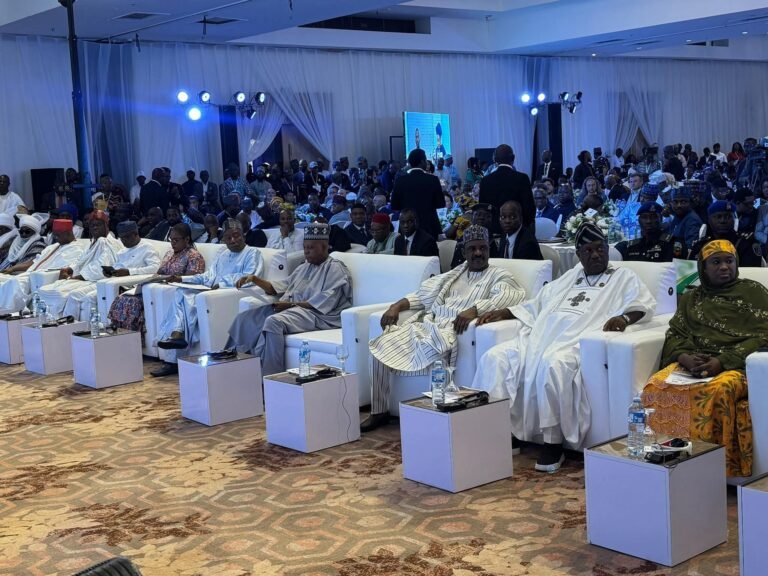President Bola Tinubu has revealed that the Kano-Maradi rail project which was five per cent completed when he assumed office is now inching towards 60 per cent completion.
The president disclosed this in Abuja at the 2nd International Railway Conference & Expo 2025 in Abuja, with the theme: “Opportunities and Challenges in Railway Development in Africa.”
Tinubu, represented by Vice President Kashim Shettima said Nigeria was in greater need of railway services due to the size of its economy and the sheer scale of the country’s population.
He noted: “By 2050, we will be the third most populous nation on earth. We will surpass the United States, and our population will hit four hundred and forty million people.
“Hence, railway will become the bridge between our agricultural commodities and the rest of the world, while serving as the most reliable means of mass transportation for our people.
“The world has remained committed to railway services because they represent more than a month of transport. They have proven to be the backbone of industrialisation.
“They shape not only economies, but also the cultural and social bonds of societies. This enduring relevance explains why every poor-looking nation from China to Vietnam, across generations, has invested in the railways as a special driver of development.
The President stressed that the agenda of his administration is shaped by the urgent need to reduce the burden on our roads and highways stating that decades of over-reliance on road transportation have led to congestion, rapid deterioration of infrastructure, and higher accident rates.
Tinubu pointed out that railways offer safer and more environmentally friendly alternatives, reducing carbon emissions and reinforcing our commitment to sustainable development.
He said the task of maximising the immense opportunities in the railway sector is not one considered easy, saying it requires networks, partnerships, and robust collaboration with stakeholders.
Tinubu added: “This is why our ongoing modernisation projects Lagos to Kano, Kano to Maradi, and Petrako to Maidugui are designed with open doors for private sector participation.
“We must ensure not only timely completion, but also sustainability and efficient utilisation of these projects. I am happy to note that upon the takeover of the present administration, the Kano-Maradi rail project was 5 per cent completed. Now we are inching towards 60 per cent completion.
“Our aspiration is for a nationwide industry that can convey their products to the market and where raw materials can move seamlessly from primary producers to industries without hindrance.”
On his part, the Secretary to the Government of the Federation, Senator George Akume, said the renewed propaganda of the Sub-Saharan Africa Limited CFI prioritised transformational infrastructure, economic diversification, job creation, and sustainable national development.
He noted that the project is an integrated conference of high-speed rail, power generation and transmission, energy infrastructure, and digital platforms, which solidify these priorities and offer significant opportunities for inclusive growth and national integration.

